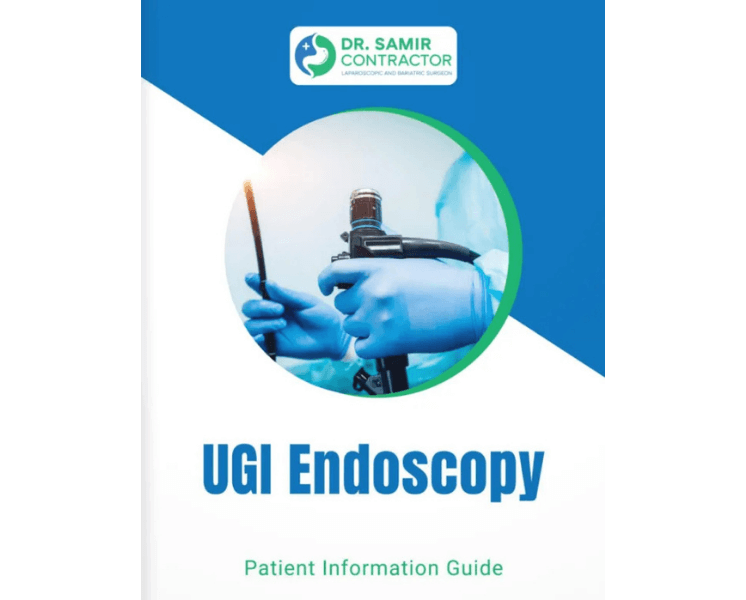 Book Appointment
Book Appointment

Bariatric Surgery with Dr. Samir Contractor — Everything You Need to Know.
Book a ConsultationLiving with obesity can be overwhelming—not only does it affect physical health, but it also impacts confidence, mobility, and quality of life. Many people struggle with weight loss despite repeated efforts with diets, exercise, and medications. For those facing severe obesity, Bariatric Surgery (Weight Loss Surgery) is a scientifically proven, effective, and safe solution.
To help you make an informed decision, we’ve compiled this comprehensive list of Frequently Asked Questions (FAQs) about Bariatric Surgery. Our goal is to address your concerns with clear, compassionate, and detailed answers.
Bariatric surgery is a group of medical procedures designed to help people with severe obesity achieve significant and sustainable weight loss. Unlike temporary diets, bariatric surgery works by:
The most commonly performed bariatric procedure is Laparoscopic Sleeve Gastrectomy, where around 70–80% of the stomach is removed. The result is a smaller, banana-shaped stomach that holds less food and reduces hunger.
You may qualify for bariatric surgery if:
Our expert surgeon carefully evaluates every patient with a detailed preoperative assessment, including blood tests, heart/lung evaluation, and psychological readiness before recommending surgery.
Yes. Bariatric surgery is considered safe when performed by experienced surgeons using modern laparoscopic (keyhole) techniques. In fact, the risk level is comparable to common operations such as gallbladder or hernia surgery.
In our practice, with over 25 years of surgical experience and more than 400 bariatric surgeries, we have consistently achieved excellent safety outcomes. Every surgery is conducted in advanced operation theatres with strict safety protocols.
Sleeve Gastrectomy is currently the most popular bariatric procedure worldwide. During this surgery:
The surgery not only leads to weight loss but also has a metabolic effect, improving conditions like diabetes and high cholesterol even before major weight loss occurs.
This quick recovery is possible because the surgery is done laparoscopically through small incisions, with minimal pain and faster healing.
No major scars. The surgery uses keyhole incisions (0.5–1 cm each). These tiny cuts usually heal well and fade over time, leaving only small, faint marks that are barely noticeable.
Most patients lose about 60–70% of their excess body weight within 12–18 months. For example:
Importantly, weight loss is not just cosmetic—it brings back health, energy, and confidence.
Yes. Bariatric surgery is often called “metabolic surgery” because of its powerful impact on health. In many patients:
In short, bariatric surgery helps patients live longer, healthier lives.
Yes, if patients commit to healthy eating habits, regular activity, and follow-ups. Bariatric surgery is a tool—it makes lifestyle change easier and sustainable. However, long-term success depends on cooperation between the patient and the medical team.
The diet progresses in phases:
Our dieticians will provide personalized meal plans that ensure nutrition while supporting weight loss.
Yes. Because food intake is reduced, vitamin and mineral supplements are essential lifelong. These include:
This is a small but important step to ensure good health after surgery.
Yes, but in controlled portions. You will be able to enjoy most foods after 2–3 months, provided you eat slowly, chew well, and avoid high-calorie junk food. Surgery is not about deprivation—it’s about learning balance.
Most patients return to light office work in 7–10 days. Physical labor may require 3–4 weeks. By 6 weeks, most patients can resume full activities, including exercise.
Yes. In fact, fertility improves after weight loss, especially in women with PCOS and obesity-related infertility. However, it is recommended to wait 12–18 months before planning pregnancy so that the body stabilizes.
Loose skin can occur after major weight loss, especially in older patients. Factors like age, genetics, and speed of weight loss play a role. If required, cosmetic body contouring surgery can help remove excess skin.
Like any surgery, bariatric procedures carry risks, though they are rare. Possible risks include:
With our experienced team and advanced facilities, complication rates are very low, and patients are closely monitored to ensure safety.
Yes, many health insurance companies in India now cover bariatric surgery, provided you meet eligibility criteria (BMI >35 with comorbidities or BMI >40). Our staff will assist you with documentation and approvals.
The cost depends on:
Bariatric surgery is generally more affordable compared to metro cities, and we provide transparent, all-inclusive packages.
Yes. Follow-ups are crucial for safe, sustained results. A typical schedule includes visits at:
These visits include weight monitoring, nutritional assessment, and counseling.
Most patients experience:
However, some may find the lifestyle changes challenging initially. Our team provides counseling and support groups to ensure emotional wellbeing.

Patient Information Guide